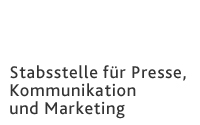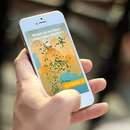Executive Department for
Press, Communication and Marketing
Adolf-Reichwein-Straße 2a Gebäude AVZ (Gebäudeteil AR-NA) 57068 Siegen
Phone: +49 (0)271/740-4915 Fax.: +49 (0)271/740-4911 E-Mail: presse@uni-siegen.de
When Commuting Suddenly Causes Happiness
How can we develop products that enhance people's well-being? Researchers at the University of Siegen investigate just this.
A convertible drives towards the sunset, wind blows through the driver’s hair. We see such scenes in commercials for cars, but they have little to do with reality. There, honking trucks, miles of congestion on the highway or construction sites are the reality. "The everyday life of German motorists is the commute, not the wild adventure ride on the coast," says Professor Dr. Marc Hassenzahl, of "Ubiquitous Design" in the School of Business Information Systems (Faculty III) at the University of Siegen. He wants to design products so that they address people in everyday life and increase their well-being. That’s the aim of his research in the project "Design for Wellbeing" (well-being-oriented design).
Interestingly enough, it turned out, that if you ask people if they would rather beam themselves to work, that many were reluctant to give up commuting. Hassenzahl and his team wondered: Under what conditions does commuting cause positive feelings? Result: Many people consider driving back and forth to work an important part of everyday life and appreciate the distance to the workplace. Some use this time to switch from hard-worker mode to leisure-time mode. Above all, people with small children consider the commute to be time they have for themselves, to switch off and come down before the hustle and bustle continues at home.
The Siegen science team developed ideas to design car technology that it meets people's needs for peace and security. "When the mobile phone rings in the car and the colleague expects you to attend a conference call, you can not switch off, of course," says Hassenzahl. The car should therefore protect the driver from communication. Calls are not put through, the phone does not ring and the car communicates in lieu of the driver that he or she will be available later.
"From a technical point of view, that may sound trite and simple. From a psychological point of view, however, it is incredibly valuable and complex," explains Holger Klapperich, research assistant at the University of Siegen. "Sure, I could just turn on flight mode on the phone, but who’s going to do that?" “Design for Wellbeing” is about steering people, through technology and products, in a direction that they themselves consider beneficial - but often don’t pursue in everyday life. "Consumers and users can then decide for themselves if they want to try out the new technology." Many automakers have now realized that it's not just about form, material and functionality, but about creating experiences and fulfilling psychological needs.
"In this type of design the commercial interest to companies is not the primary aim," says Hassenzahl. One company that embraces the ideas of the Siegen researchers is Lufthansa. Together with ixdp. and the other project partners, the scientists have developed the prototype of an app to help people with their vacation planning. "Many people do not simply want to board a cheap flight from A to B and spend their holidays in an all-inclusive hotel," explains Hassenzahl. "Instead, some make a conscious effort to get out of their comfort zone and use the vacation to find themselves. But they do not necessarily know what their goals are. "The app enquires the needs of the user: For what purpose do you want to go on vacation? What kind of experiences are you looking for? How important are safety or attachment to other people to be happy? Based on these answers, the app makes suggestions.
"In this case, we have a win-win situation," explains Klapperich. "The user finds destinations that he might never have thought of, and has at best a perfectly fitting and fulfilling vacation. Lufthansa thus increases the likelihood that people will choose flights with their airline. "In addition, the app can fulfill another function: Redistribute the global tourist flows. The app could suggest places that are overrun by tourists to very few users. Instead, it proposes more comparable but less visited places, so that the economy and the people there benefit from tourism.
Interested parties can find out how the ideas of the Siegen researchers are received by consumers in everyday life, and what experiences the cooperating companies have had, at the final conference on 26 September from 3 to 7 pm in Köln.
Date: 26.09.2018, 15:00 – 19:00 o‘clock
Where: Startplatz Köln, Im Mediapark 5, 50670 Köln
Registration: http://www.design-for-wellbeing.org/summit2018/
Contact
Univ. Prof. Dr. Marc Hassenzahl
marc.hassenzahl@uni-siegen.de
0271/740-5205
Further information about the research project:
Cooperation with Noot Design (Köln), ixdp. (Essen) and Happiness-Research-Organisation (Düsseldorf)
Sponsored by the State of NRW / Leitmarktagentur and the EFRE
Funding code: EFRE-0800005


